Britain & Ireland
The Tudors continue to fascinate and some of their story is told here along with the other dynasty of the period the Stuarts. Alongside those resources are the podcasts on the ideas that transformed British society during that period and created a United Kingdom for the first time. The industrial revolution is explored through poetry as well as technology. Religious collapse, change and diversity are all themes explored in this section. Read more
Sort by:
Date (Newest first) | Title A-Z
Show:
All |
Articles |
Podcasts |
Multipage Articles
-

Virtual Branch Recording: The Fall of the English Republic
ArticleClick to view -
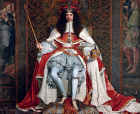
The Exclusion Crisis (1679–81)
ArticleClick to view -
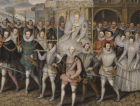
Virtual Branch Recording: The cultural world of Elizabethan England
ArticleClick to view -
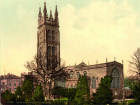
Out and About in ‘The most Loyal and Ancient City of Taunton’
ArticleClick to view -

Opinion: Who was ‘the man of his time’?
ArticleClick to view -

My Favourite History Place: A Short History of Brill
ArticleClick to view -

Out and About: exploring Lancaster’s ‘glocal’ history online and on foot
ArticleClick to view -

In conversation with Nicholas Radburn
ArticleClick to view -

My Favourite History Place: The Holburne Museum
ArticleClick to view -

The Coronation of King Charles III
ArticleClick to view -

Joan Vaux: a remarkable Tudor lady
ArticleClick to view -
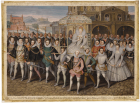
Elizabeth I: ‘less than a woman’?
ArticleClick to view -

Tudor queens: power, identity and gender
ArticleClick to view -
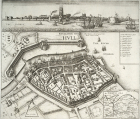
Out and About in Hull’s Old Town
ArticleClick to view -

What Have Historians Been Arguing About... the impact of the English Reformation
ArticleClick to view -

Film: The ladies-in-waiting who served the six wives of Henry VIII
ArticleClick to view -

After the revolution: did Cromwell, Washington and Bonaparte betray revolutionary principles?
ArticleClick to view -

Croydon’s Tudor and Stuart inns
ArticleClick to view -

My Favourite History Place: Swarkestone Bridge
ArticleClick to view -

A woman of masculine bravery: the life of Brilliana, Lady Harley
ArticleClick to view

